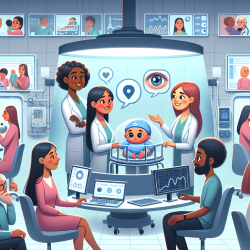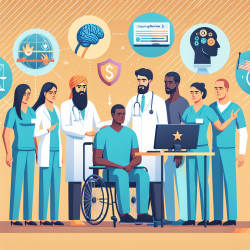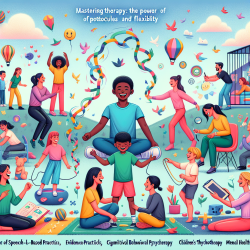At TinyEYE, we’re always on the lookout for innovative ways to enhance our online therapy services for schools. One area of research that has caught our attention is the study titled Complex Motor Learning and Police Training: Applied, Cognitive, and Clinical Perspectives. Although it focuses on police training, the findings have profound implications for improving the skills of practitioners in educational settings.
The research highlights the importance of understanding the fundamental cognitive processes underlying motor learning. From basic skill acquisition to complex behaviors, situational awareness, and decision-making, these principles can be adapted to enhance online therapy practices. Here’s how:
- Chunking Information: Just as police officers learn to break down complex tasks into manageable chunks, therapists can use this technique to teach students new skills incrementally. This method helps in reinforcing learning and making it more digestible.
- Visualization and Mental Practice: The research emphasizes the role of the Mirror Neuron Network (MNN) in facilitating motor learning through observation and visualization. Therapists can incorporate visualization exercises to help students internalize and practice new skills without physical repetition.
- Scenario-Based Training: Realistic, scenario-based training is shown to be highly effective in police training. Similarly, creating virtual scenarios for students can make online therapy sessions more engaging and practical, enhancing their real-world application.
- Stress Management: Understanding how stress affects performance is crucial. The research shows that moderate stress levels can enhance learning, while extreme stress is detrimental. Therapists can design sessions that introduce moderate stressors to prepare students for real-life challenges.
- Feedback Mechanisms: Immediate and constructive feedback is essential for reinforcing correct behaviors and recalibrating errors. This principle can be applied in online therapy sessions to ensure continuous improvement and skill retention.
By integrating these research findings into our online therapy practices, we can significantly enhance the effectiveness of our services. Encouraging practitioners to delve deeper into such research can lead to innovative approaches and improved outcomes for students.
To read the original research paper, please follow this link: Complex Motor Learning and Police Training: Applied, Cognitive, and Clinical Perspectives.










